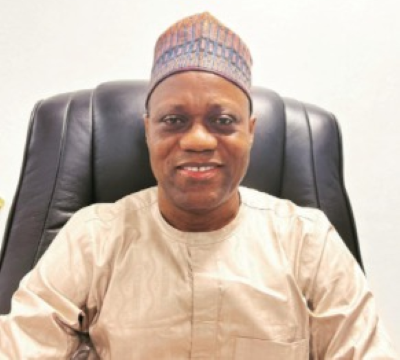The National Bureau of Statistics (NBS) has unveiled the fifth wave of the General Household Survey-Panel(GHS-Panel) which will help track the resilience of Nigerian households over time.
The News Agency of Nigeria(NAN) reports that the GHS- Panel Wave 5 2023/2024, which was carried out by the NBS in partnership with the World Bank, was unveiled in Abuja on Thursday.
Adeyemi Adeniran, Statistician-General of the Federation, said the GHS Panel survey was a multi-topic data collection exercise that served as an essential tool for capturing the dynamics of Nigerian households.
Adeniran said the survey was important because it provided invaluable insights into their economic activities, well-being, and resilience.
“It specifically collects information on household income, assets and consumption, income-generating activities, health, education, shocks, and much more.
“It is a longitudinal survey, meaning that it tracks and interviews the same respondents over time.
“ In this case, with this being the 5th Wave of the survey, approximately the same 5,000 households have been followed and interviewed across five waves and wave one was conducted in 2010/2011.
He said the panel approach allowed for some interesting analysis to be done, which could better tell the story of life in Nigeria and the living conditions of Nigerians.
“ For example, using data from Waves Four and Five, an asset index was created which categorised households into three groups based on their wealth transition across time.
“41.7 per cent of the households stayed in the same wealth quintile as reported in Wave 4, while 29.4 per cent experienced an upward shift, and 28.9 per cent experienced a decline in their position in the wealth distribution.
“The key factors influencing these changes included environmental and economic shocks, with households experiencing downward mobility more likely to report being affected by floods and post-harvest losses as the main cause of the changes.”
Adeniran said the most important was the impact of the survey in terms of its contribution to knowledge and the application of its findings to the design of policies and programmes.
“Available records indicate that, over the last five years, the survey findings have been used to design several projects and intervention programmes worth approximately 8.9 billion Dollars across many sectors.
“These sectors include Agriculture and Food, Education, Water, Social Protection and Jobs, Governance, and several others.”
Adeniran said for the 5th wave of the survey, enhanced modules that captured key aspects such as migration patterns, remittances and the impacts of climate-related shocks were introduced.
He said additional modules on children were also incorporated, with one of the modules capturing early childhood development, and identifying the main caregivers of the children in the household.
“ I, therefore, encourage all policymakers, researchers, and stakeholders here today to engage with the data and use these insights to drive evidence-based decisions and policy-making across your work.
“ Whether for poverty reduction initiatives, social welfare programmes, or economic development strategies, the findings of this report offer a powerful foundation for addressing the specific needs of all Nigerians,” he said.
Sen. Abubakar Bagudu, Minister of Budget and Economic Planning, said the outcome of the survey would serve as a centre stage for proper planning.
Bagudu, represented by Dr Zainab Pisagih, Director of Planning in the ministry, said the survey findings would help with decision-making, strategic planning, and allocation of resources to the right channels.
“ The survey will change the way we think at the planning stage and help us stay focused so we can plan better for the Nigerian economy.”
Dr Ndiame Diop, World Bank’s Country Director for Nigeria, said the survey was important in understanding how Nigerian households responded to policy changes, crises and shocks.
Diop was represented by Vinay Vutukuru, Programme Leader, Sustainable Development, Nigeria.
Diop, however, said the key thing was how the data would be used by ministries and stakeholders for effective policy formulation to achieve economic and sustainable growth.
He pledged the bank’s continuous support in working with the NBS to strengthen Nigeria’s statistical system. (NAN)


